Text
Made a new blog just for a bit more historical stuff.
#history#studyblr#studying#teaching#german history#booklr#reichblr#wwii era#wwii history#wwii germany
4 notes
·
View notes
Text
"If the day should come when we must go, when one day we are forced to leave the scene of history, we will slam the door so hard that the universe will tremble and humanity will be left stunned." - J.G.
124 notes
·
View notes
Text
Those in power control what is produced.
Film played an important role in the propaganda of the NS regime, between 1933 and 1945. Of all the arts, film and cinema received the most support.
(Say what you want, I love these movies)
#history#studying#studyblr#teaching#booklr#german history#reichblr#wwii germany#wwii era#wwii history#wwii art#wwii#germany#1940s#1930s#1930s movies#1940s movies
60 notes
·
View notes
Text
“For the commission to do a great building, I would have sold my soul like Faust. Now I had found my Mephistopheles. He seemed no less engaging than Goethe's.” - Albert Speer
44 notes
·
View notes
Text
"These retrospective ideas of the Third Reich, really serve, and this terrible evil, what we recognize from the end - what these people here probably do not see yet, or want. We stylize the Third Reich as a block, detached from the history of the Germans, as if it had come over us from Mars. And this is expressed in language. We always say the crimes of the National Socialists and pretend that these people who are shown here are not our ancestors. And as if they were not just as intelligent and morally established in principle as we are. They were not essentially different from us. You have to realize that. And that's what all the theories, all the claims about the primacy of the ideological try to hide." - Götz Aly, German historian.
(yea I used this audio again…)
103 notes
·
View notes
Text
Some Christmas and winter atmosphere <3
The twin Bavarian towns of Garmisch-Partenkirchen hosted the Winter Olympics in February 1936. [ Christmas was an important part of the Third Reich, as was the winter relief work. Christmas was a celebration of the whole people, across classes, estates and denominations. Bringing the family together was also important to the National Socialists and the celebration of festivities in general played a central role for the regime. The Christmas cult drew on the symbolism of Germanic mythology, coupled with an exaggerated mother cult and an unconditional veneration of heroes and the dead. ]
I absolutely love this song
114 notes
·
View notes
Text
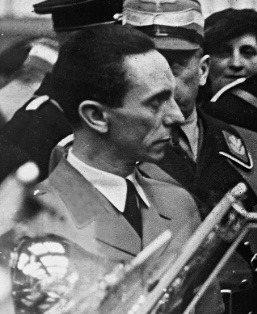
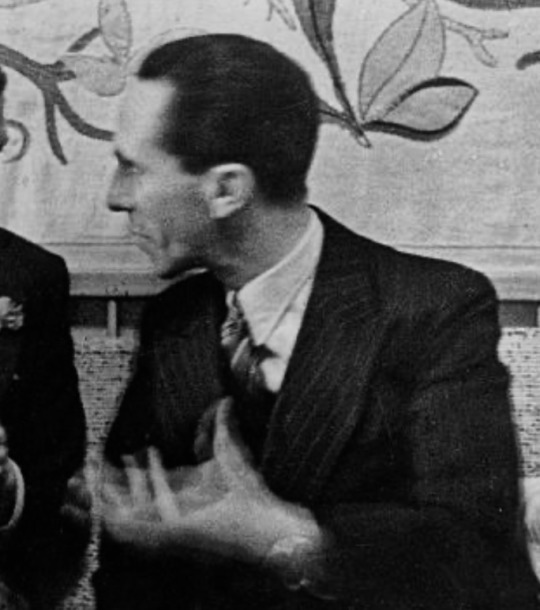

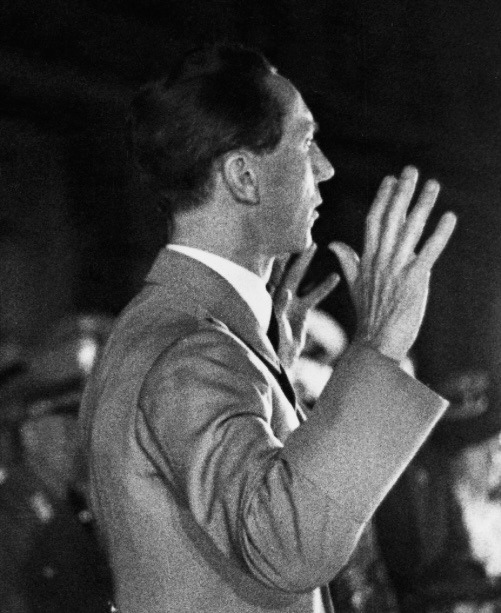

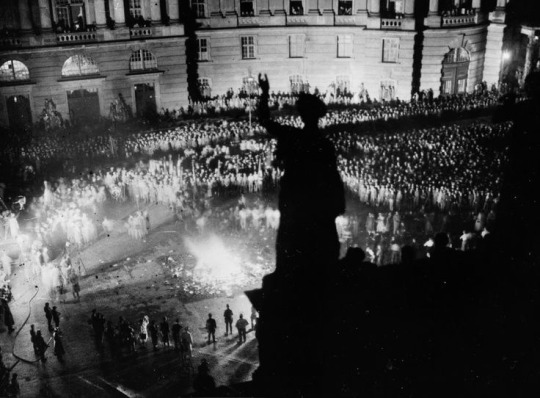
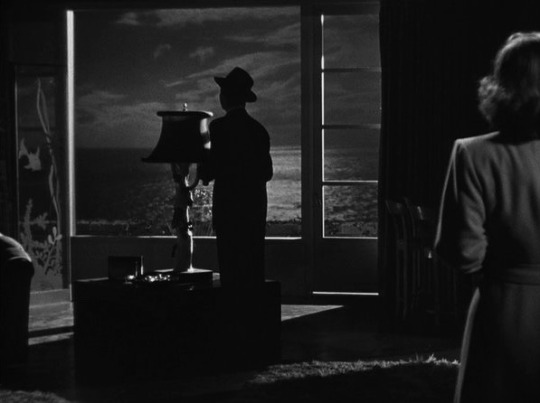
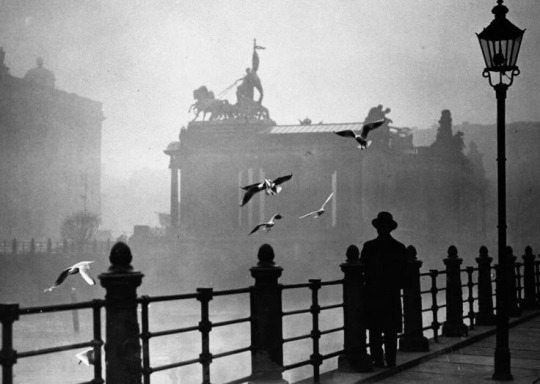
Rat aesthetic.
116 notes
·
View notes
Text
Jud Süß (Jew Suss) 1934 based on the book written by Lion Feuchtwanger 1925. (Veidt looks so good in this I‘m literally in tears because of his beauty.)
#I’m in tears this man is so beautiful#history#I’m crying look at him#screaming without the s#look at him#he‘s literally shining#studying#studyblr#teaching#german history#british history#old movies#booklr#britain#germany#conrad veidt#no i like him actually#i love him#i want him#gorgeous rat#gorgeous#ratty man#I hope he‘s free tonight
55 notes
·
View notes
Text
Olympics of records
Berlin, Olympic Stadium, August 1, 1936: The XI Summer Olympics open in Germany. The National Socialists deploy extensive financial, organizational and personnel resources to stage the Games. For the majority of participants and visitors, they are an overwhelming experience. The meticulous staging of the games is highly appreciated by them. At the "Olympics of Records", the number of participants, competitors and visitors is greater than ever before. Jesse Owens, who wins four gold medals for the USA, is celebrated by the audience.
Visit my Pinterest account:) https://pin.it/4xuemsY
#history#studying#studyblr#teaching#german history#reichblr#america#american history#atomic age#booklr#olympics#Olympics 1936
35 notes
·
View notes
Text
Geli Raubal was the niece of H"tler, the daughter of his half-sister Angela Raubal.
Contemporaries described the daughter of H”ler's half-sister, born in 1908, as a "radiantly pretty, fun-loving brunette from Linz with Viennese charm and a mischievous laugh."
H”ler fell for this charm and began an affair with the 19-year-old.
On September 18, 1931, at the age of 23, Raubal shot himself in the apartment they shared, and the court ruled suicide.
Numerous speculations revolved around the question of whether Raubal was his lover. The significance she had for her uncle was never clarified, nor could the authorship of a nude study by the 21-year-old be attributed to him. The historian Joachim Fest sees Raubal as his only great love.
#third Reich#reichblr#German history#geli raubal#toxic relationship#i will teach you history on a creative way not the boring teacher way#history#studying#booklr#literature#Germany#1920s#1930s#1940s#wwii era#wwii germany#wwii history
22 notes
·
View notes
Text
When the First World War broke out in 1914, Adolf H"tler enthusiastically volunteered to join the German army.
He was assigned to the ground troops on the Western Front. As a messenger, he delivered messages from the army command to the front.
In December 1914, he is awarded the Iron Cross II Class for his bravery. In a letter to his former landlord, he writes: "It was the happiest day of my life."
Among other things, the he was considered an "eccentric", whose only friend was his dog, a white terrier with a black left ear. He came to him in mid-March 1915, probably from a British trench. He christened him "Foxl" and looked after him for two years.
According to the impression of a fellow soldier, he was more interested in animals than the men in his small group of messengers. He also received no letters from home.
Another picture with Foxl was taken at the beginning of July 1917, but three weeks later the animal suddenly disappeared. The animal may have been stolen by an employee of the railroad. In any case, this was a great personal loss for him.
The question of what reputation he enjoyed in the army is answered differently in research. He is described as an antisocial eccentric - but also as an impeccable comrade. It is documented that some called him the “spinnerten Österreicher” ("crazy Austrian"). He was opinionated and argumentative, as his temporary superior Wilhelm Dieß later recounted. He was a law professor and one of the most important Bavarian storytellers of the 20th century.
When Germany lost the war in November 1918, he was in a military hospital. He was temporarily blinded by a poison gas attack. The news of Germany's surrender plunged him into a deep crisis. His war experiences had a great influence on his life and thinking. Under the impression of the lost war, he becomes radicalized and politically active.
[Movie: The Rise of Evil (2003)]
#reichblr#german history#history#teaching#studyblr#studying#booklr#books#first world war#dogs#interesting#movie#the rise of evil#historical movies#i will teach you history on a creative way not the boring teacher way#war#war movies#I’m addicted this song lmao#dark#20th century
81 notes
·
View notes
Text
• 𝐓𝐡𝐞 𝐅𝐢𝐫𝐬𝐭 𝐖𝐨𝐫𝐥𝐝 𝐖𝐚𝐫 •
The First World War accelerated the path to modernity. It was the "Primal catastrophe" of the 20th century, an era of war, violence and displacement. It cost the lives of around 17 million soldiers and civilians, destroyed large parts of Europe and left behind unresolved problems that led to further violent conflicts.
[Without the First World War, the rise of fascism and communism and the transition to systemic competition between West and East, the 20th century cannot be understood.]
The assassination of the Austro-Hungarian heir Franz Ferdinand and his wife in Sarajevo on June 28, 1914 is regarded as the trigger for the First World War. In Vienna, the military pressed for a swift retaliatory strike against Serbia. The German Reich assured Austria-Hungary of its unrestricted loyalty to the Danube monarchy.
On July 28: Austria-Hungary declares war on Serbia - Russia starts mobilization.
On August 1: The German Empire declares war on the Russian Empire.
August 2: Invasion of German troops in Luxembourg.
August 3: Invasion of German Troops in Belgium - the First World War begins.
The age of weapons of mass destruction and industrial warfare began in early 1915 with the German chlorine gas attack on the Ypernbogen. Almost two million German, French and British soldiers died on the barren battlefields and in the trenches of the "Hell of Verdun" in 1916. However, the course of the front changed only slightly as a result of these material battles.
In total, the war claimed 17 million lives. It ended on November 11, 1918 with an armistice and the defeat of the German Reich. In Germany, the monarchy collapsed and the Weimar Republic was founded.
In 1917/1918, numerous monarchies collapsed in quick succession and were replaced by democratic republics, as was the case in Germany in November 1918.
After 1918, no new stable framework of order was recognizable - neither socially, politically nor internationally.
The new models of the Russian Bolsheviks, the fascists in Italy and the National Socialists in Germany were unmistakably opposed to the liberal legacy of the 19th century, not least in their pronounced willingness to use violence. This had to do with the diverse experiences of world war, the transitions from state war to revolution and civil war, as well as the disappointed expectations in many societies in view of the peace treaties of 1919.
#german history#history#teaching#studyblr#studying#booklr#books#literature#I will teach you history on a creative way not the boring teacher way#aestetictumblr#germany#italy#russia#history is important#world war#world war ii#world war 1#20th century#19th century#political#politics#study blog#study motivation#I Love studying lmao unpopular opinion#I’m new on Tumblr#spread knowledge#knowledge#I want to know everything like Faust#important history#historical facts
48 notes
·
View notes